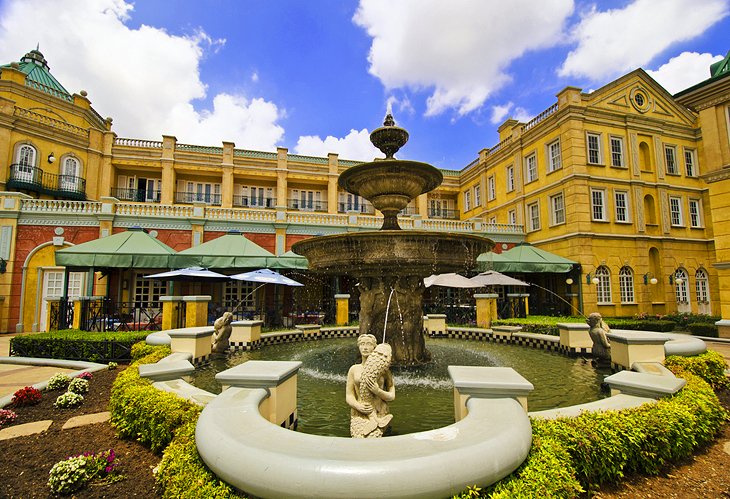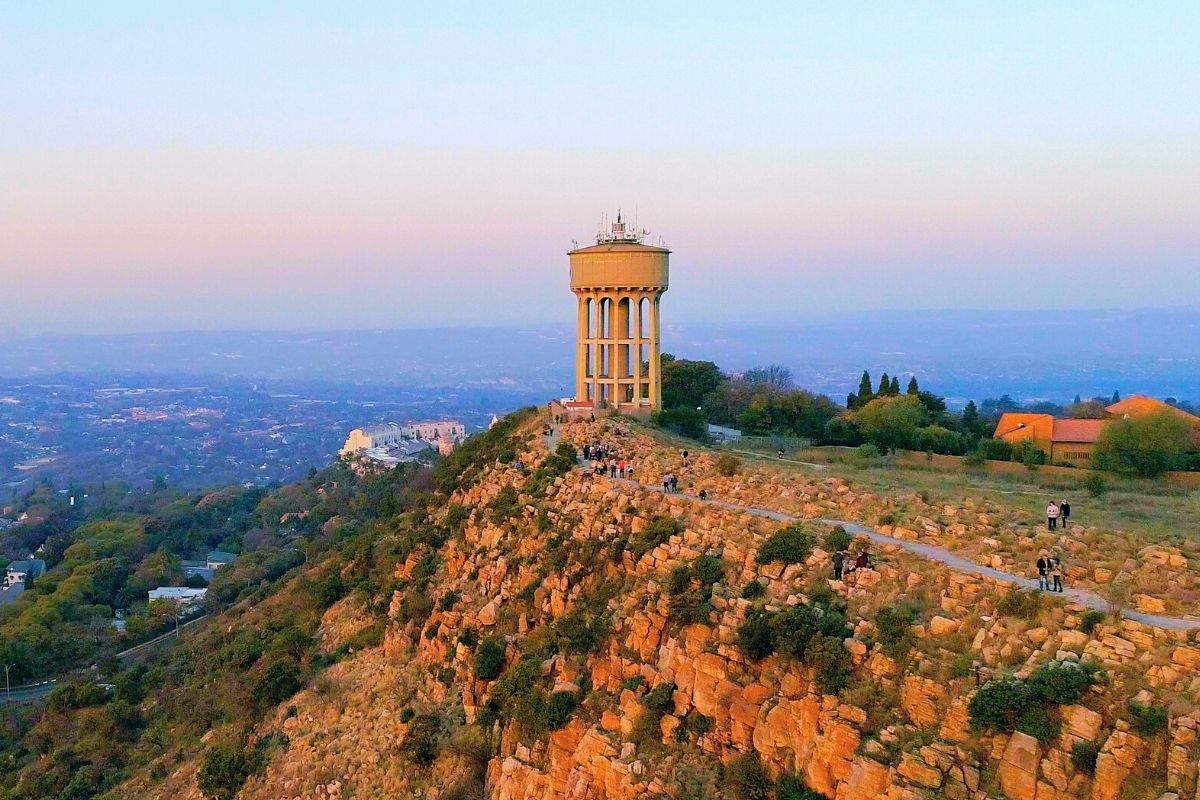Unknown Facts About Johannesburg North Attractions
Unknown Facts About Johannesburg North Attractions
Blog Article
Johannesburg North Attractions Things To Know Before You Get This
Table of ContentsThe Main Principles Of Johannesburg North Attractions The smart Trick of Johannesburg North Attractions That Nobody is Talking AboutSome Known Factual Statements About Johannesburg North Attractions Fascination About Johannesburg North AttractionsThe 25-Second Trick For Johannesburg North AttractionsSee This Report on Johannesburg North Attractions
The city grew on the edge of the Witwatersrand Main Reef, a subterranean stratum of gold-bearing quartz-silica corporation that arcs for hundreds of miles below the Highveld - Johannesburg North attractions. Most of the gold mines in the city discontinued operation in the 1970s, but in its day the Witwatersrand gold market accounted for more than 40 percent of the globe's yearly gold manufacturing.Johannesburg has a pleasant climate. The city enjoys concerning 8 hours of sunshine per day in both wintertime and summertime.
What rainfall the city gets drops nearly exclusively in the summer months, commonly in magnificent late-afternoon electrical storms. Air contamination poses a significant problem, particularly in the winter season, when thermal inversions restrain the westward circulation of air from the Indian Sea. Contamination is most severe in the densely cleared up Black towns on the city's periphery, where numerous homeowners still count on coal for fuel.

The Main Principles Of Johannesburg North Attractions
The balance of the city is occupied by whites. Lodging differs in character and high quality. Soweto is well-known for its limitless rows of municipally built, two-room matchbox homes, yet it additionally has a few flourishing territories in addition to brimming squatter camps, where tens of thousands live without water, electrical power, or cleanliness centers.
Physical growth, although rather limited by transportation, continued quickly as migration to South Africa, and Johannesburg specifically, raised significantly. This issue was solved in the 1930s when the car was presented in mass manufacturing to South Africa. Cars were, essentially, restricted to the affluent, and permitted them to relocate to the north of the city and commute right into the centre.
Many inadequate suburban areas were blended, with inadequate blacks and whites living together, although the well-off suburbs were normally reserved for whites.
The previous system of eleven phoned number areas was reorganised in 2006. Marshalltown, as seen from the top of the Carlton Centre. The M1 and M2 run behind the structures, and the southern residential areas extend past the highway border. The inner city of Johannesburg is situated within the city's Region F. internet The estimated population of the area is 200,000, [] yet the variety of people living in the inner city on a casual basis is unidentified, as many are illegal immigrants. Most higher-income citizens and white people have transferred to the north residential areas and have been replaced by lower-income black individuals. The unemployment, education, and age accounts of the location are all unknown, due to the problem of acquiring trusted details regarding the area.
Excitement About Johannesburg North Attractions
Centred on the CBD, the region includes the suburbs of Yeoville, Bellevue, Troyeville, Jeppestown, and Berea to the eastern. To the west it infects Pageview (Johannesburg North attractions) and Fordsburg. There are tiny enterprise zones to the south, such as City West-Denver and Benrose. Around 800,000 travelers pass with the central city daily, and it operates as a local purchasing node for visitors from the southerly residential areas. Yeoville pop over here and Bellevue have a mix of apartment and single property units on little whole lots. The region is located on a hilly divide that ranges from east to west. The most obvious geographic function is Observatory Ridge, which is called for the huge observatory located on it. The leisure spaces are no more made use of, because of protection problems.

Johannesburg Arena, a training ground for both the Golden Lions and Orlando Pirates, is adjacent. The eastern suburbs of Johannesburg are located in the city's 7th [] and 9th [] regions. The area is also functionally incorporated with East Rand boundary towns outside of the official border of Johannesburg, such as Bedfordview and Edenvale (both component of Ekurhuleni Metropolitan District).
Some Known Incorrect Statements About Johannesburg North Attractions
The eastern suburban areas are some of the earliest locations of Johannesburg, there are big areas of Jewish and various other European histories, the majority of the populace is English talking. There are 3 golf programs as well as a number of secured ridges with viewsites.
Originally built to house male migrant employees, several have actually been boosted as houses for pairs and households. link The suburban area was not historically allowed to create employment centres within the location, so almost all of its residents are travelers to various other parts of the city.
Johannesburg North Attractions Can Be Fun For Everyone
The N1 Western Bypass connects the northern suburban areas with the north-western suburbs. The residential areas in the northern suburbs are primarily official, without any substantial areas of casual real estate, or housing that does not have a permanent framework. Although this is an established location, there is a trend of land use adjustment from residential to commercial, particularly along primary arterial roadways and around well-known nodes.
The area is well connected to road networks, particularly along the north-south axis developed by the M1 and N1. Roads to the east and west are much less well developed, as there are no freeways travelling because instructions. In the direction of the northern border of the city, the density of development lowers, leaving large areas of primitive land around Midrand.
Johannesburg North Attractions Can Be Fun For Anyone
, which is located on a hill forgeting the internal city and Hillbrow.
Report this page